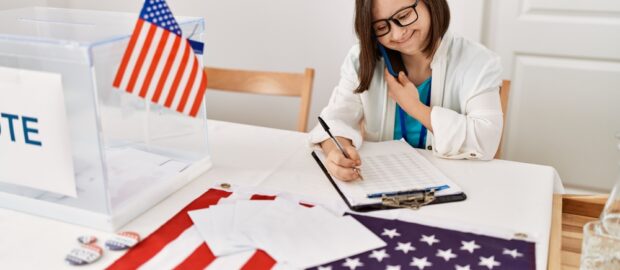
Dirty voter rolls are the absolute worst thing about our elections in America, especially when combined with mass mail-in voting. It’s how the 2020 election was stolen from President Donald Trump.
Democrats know that dirty rolls and mail-in voting provide them with the opportunity to cheat in elections. They make it as difficult as possible for anyone to see the voter rolls and check for accuracy or ineligible voters.
Thanks to a landmark court ruling this week, the State of Maine is no longer allowed to hide its voter rolls from the public.
The Public Interest Legal Foundation (PILF) has been suing states that make it especially difficult or nearly impossible for their voter rolls to be examined. A trick that states use to deceive the public about their voter rolls is to charge exorbitant amounts for a copy of them.
The only way to examine a voter roll effectively is to look at two different copies—for example, one from right before an election and one from the day immediately after.
That way you can tell whether a bunch of ineligible or fake voters were injected into the system and then erased right after the election. A public voter roll also lets individuals check for accuracy as well.
In Maine, people and groups are prohibited from seeing the voter rolls because the state charges $9,500 for one copy, and you can only get one if you are a representative of a political party. It would cost you $19,000 for two copies to do a reasonable comparison and check for accuracy.
That’s not a “public record.” It’s a wildly expensive dirty trick to prevent conservative nonprofits like PILF from examining your voter rolls.
Other states are even worse. Wisconsin charges $12,500 for one copy. As we reported almost one year ago today, when Omega4America finally got its hands on a copy of Wisconsin’s voter roll, they discovered one person had been registered 180,000 different times.
Each of those registrations used an invisible character on the voter registration forms in Wisconsin’s computer system that wasn’t visible to the naked eye. That’s not a clean voter roll and it’s definitely not cheap.
Alabama charges $30,000 for a copy of its voter rolls, so this dirty trick to prevent the public from investigating our elections is not limited to blue states. California and Virginia will throw you in jail if you try to look at their voter rolls. You have to be a state party or a political candidate to look at the rolls in those states.
In other words, the integrity of our elections in many states is impossible to verify because the voter rolls are effectively hidden. That’s why PILF sued Maine and is suing other states as well.
The First Circuit Court of Appeals just ruled that Maine’s voter rolls are, in fact, a public record. The state is no longer allowed to hide its voter rolls through exorbitant fees that no one can afford.
Congress enacted federal legislation back in 1993 called the National Voter Registration Act (NVRA). The law requires states to maintain clean voter rolls. It also prohibits states from preventing transparency and openness.
States have been arguing that charging tens of thousands of dollars for multiple copies of their voter rolls is “transparency,” but everyone knows that’s complete horse hockey.
This case dates back to 2019. PILF asked for a copy of the Maine voter roll but was initially denied because they’re not a political party. The Democrat-controlled Maine legislature then changed the law, so that PILF could access the rolls—but they could only conduct research that had been pre-approved by the legislature.
PILF wanted to compare Maine’s voter rolls against New York’s rolls. A ton of New Yorkers have second homes in Maine, so PILF wanted to check and see whether any of them are illegally registering in both states. Unfortunately, it was illegal for PILF to use the Maine voter roll like that. The Maine Democrats wouldn’t allow it!
The First Circuit Court wrote in its ruling, “[T]he restrictions imposed by the Use Ban erect an impenetrable barrier for those seeking to use the Voter File to evaluate and enforce compliance with the NVRA nationwide.”
This is the third state where PILF has successfully sued to gain access to the voter registration file. They won previous cases against Maryland and Illinois and have another pending in Hawaii.
It’s a long and slow process, but the result is going to mean cleaner voter rolls and fair elections. It’s going to be hilarious when blue states start turning red because they’ve finally been forced to clean up their dirty voter rolls.







6 Comments